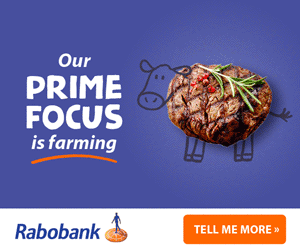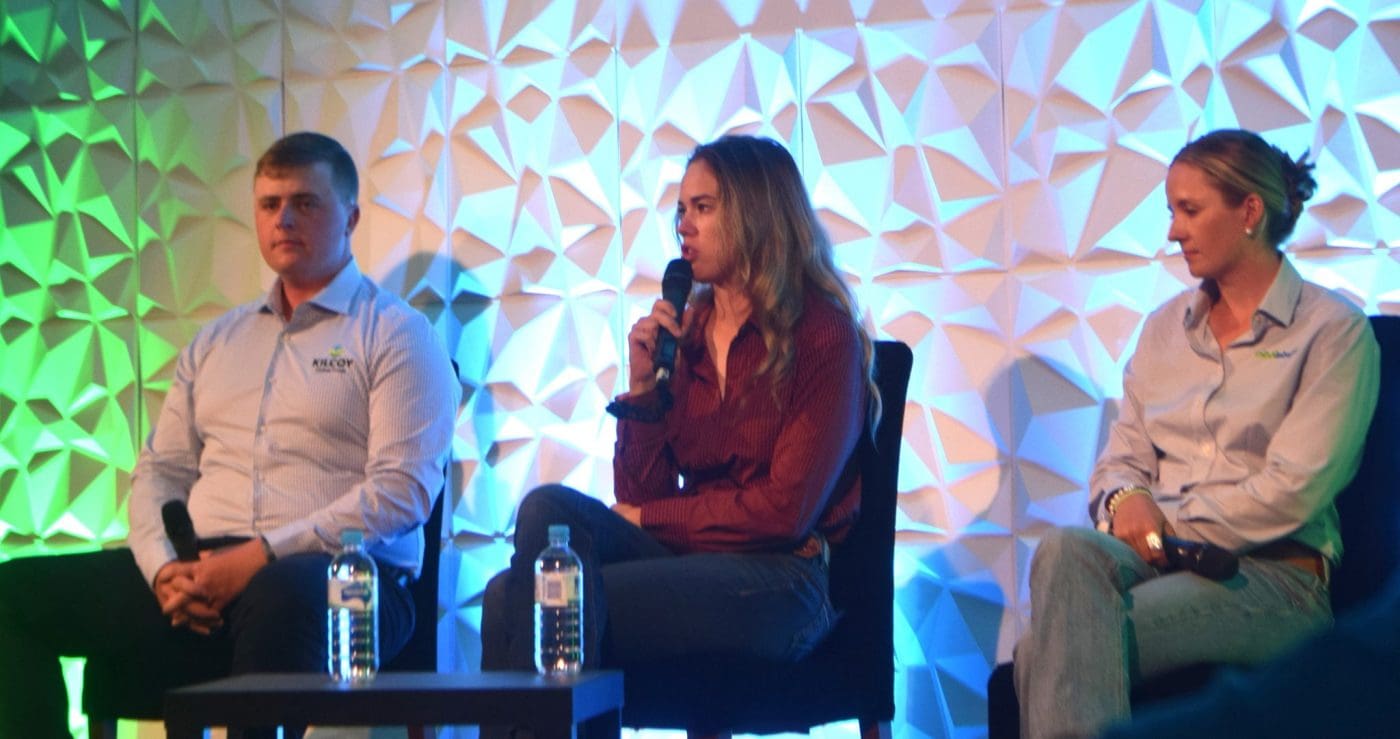SCHOOL students from across Queensland have this week been given an insight into the many and varied paths to a career in the beef industry.
In a Beef 2024 session dedicated to showcasing opportunities after school, Central Qld University put three up and coming agricultural professionals on a panel – all with very different stories.
Zoe Carter is a city kid gone bush, growing up in Geelong, before getting some stock handling experience on sheep stations and in shearing sheds before eventually heading north to work on large-scale cattle stations. Zoe has also taken to social media to showcase the industry, amassing 278,000 followers on TikTok and 79,000 followers on Instagram.
Brenden Lydford grew up Dubbo and started working in the Fletcher’s International abattoir at 16-years-old. Over the years he has progressed through the processing industry and has become the project support officer at Kilcoy Global Foods.
Jessica Paton grew up on a family cattle station in the Snowy Mountains of New South Wales, before working as a governess in the Pilbara and has eventually moved into being a support officer with AgTech company CiboLabs.
Beef Central went along to the seminar and has pulled together some of the main themes pulling together their careers in beef.
Working up from the bottom
A question about how much money there is in working in the industry, with all three talking about the importance of working up from the bottom.
“With money, there is an intangible price on learning and growth and if you can look at that learning and education early in your career the money will follow,” Mr Lydford said.
“A good hard work ethic is critical, we can teach anyone anything but you need to have the right mindset to adopt it.”
A similar answer was given by Ms Paton, who said her main priority was learning.
 “Someone said earlier in the week ‘in your 20s you learn and in your 30s you earn’ and I think that was a really great quote,” she said.
“Someone said earlier in the week ‘in your 20s you learn and in your 30s you earn’ and I think that was a really great quote,” she said.
“The financial rewards naturally come as you progress, gain experience and find what you love to do.”
For Ms Carter, working on stations as a young person was a good opportunity to save money.
“You get accommodation and you get meat. The first station job I had, you would be able to process sheep and cattle – then I used to order chocolate ice cream and apple juice off the truck, which I had to pay for myself,” she said.
“Shearing shed hands can earn about $350 a day and it is a great way to earn enough money to buy a reliable car and head up to the bigger stations up north. I love contracting, but you need the experience and the stations need to be confident in sending you to do stock handling jobs unsupervised.”
A love for travel
Travelling also appears to be a big lure to the agricultural industry, with all three panel participants attracted to the job for the ability to travel.
“One highlight for me was being able to do a university exchange at Wyoming in the United States,” Ms Paton said.
“With my current role, I have been able to visit every state and territory in Australia. Work travel is great because you can go past the touristy parts and get more personal experiences.”
A similar point was made by both Ms Carter, who had also worked in every state and territory – with the exception of the ACT. Mr Lydford’s stud cattle career has taken him across Australian states and processing career has taken him to several different countries across the world.
Growing roles for women in the industry
Ms Paton and Ms Carter were both asked how well they were being accepted as women making their way in agriculture – with host Amy McCosker pointing out the growing number of women working in agriculture.
“I have had both extremes,” Ms Carter said.
“A lot of places I have worked have absolutely adored what I do, a lot of managers tend to prefer females handling livestock, because we are generally quieter and gentler with the livestock.
“I have also had places that have hired me, then not let me do anything and have given me a hard time – I usually just leave if that happens, it is too isolated and not worth it.
“I have noticed a massive change over the past six-and-a-half year working on cattle stations, there are so many more females working on cattle stations.
“Both genders have their strengths and we have to be realistic about that.”
Ms Paton said she had never had any issues being accepted as a women in agriculture.
“I have never had an issue getting a role because I might not be bigger and stronger than the other applicants,” she said.
“We advertised a job recently with CiboLabs and all the applicants were women.”

